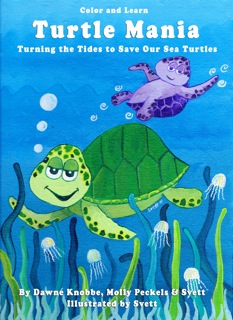
Writers are a unique group of people. We live in our heads, surrounded by characters that tell us their stories and expect us to record them on paper. Sometimes those characters keep us up at night, interrupt our daily chores, and become more real to us than our everyday lives. To outsiders we are loners, a wee-bit crazy, and not always understandable.
1. That brings me to the first reason for the importance of a writing community:
UNDERSTANDING Who else is going to understand you missing a meal, staying up all night, or holeing yourself up in a locked room? Only other writers. They understand that writing is a consuming, demanding job. They understand that if you don’t get the ideas down on paper NOW, that later, when time allows, you may find yourself staring at a blank screen. They are the only ones who get where you are coming from, so join a group! (Check out SCBWI.org, and local writers groups that meet at libraries. If you can’t find a group, start one!)
2. ENCOURAGEMENT: When you hit a glitch, and your characters have taken a long weekend in Neverland. only another writer understands those dry spells. We need encouragement. The great thing is that not only do other writers encourage each other, but when they are gathered together, an energizing ripple effect begins to roll. As each writer discusses their latest project, your own brain’s ideas begin to flow and the next thing you know you are excusing yourself to rush home to your computer to write.
3. Every manuscript requires many sets of eyes. CRITIQUE groups are a must. Every time I finish a manuscript, I just know it is an award-winning book. But the reality is that good writing begins with rewriting. Even though the story is clear in your head, the reader isn’t always able to see things the way you pictured them. That’s where many sets of eyes are helpful. Your peers can tell you the manuscript’s strengths and where it needs some work. Fellow writers are your first readers and helpful editors.
4. A good writing community is needed for NETWORKING. I attend as many conferences, workshops, and critique meets as possible. Writers know what is happening out there in the big world of publishing. You hear things about editors who are wonderful to work with, publishing houses that have recently opened their doors to unsolicited manuscripts, and houses that are now requiring a query letter. Go, listen, and grow!
5. Who are you ACCOUNTABLE to? Unless you are under deadline with a publisher, writing requires you to be your own boss. Some writers are diligent, setting aside a set amount of time to write daily, but many writers are so creatively wired that they get off task easily. I am one of those people. I am a crafter, a nature lover, a thrift store hunter, and a five-year-old at heart. Unless I have someone to answer to, I find it is unbelievably easy to get distracted. My writing community helps me to be accountable.
6. A writing community is vital because they will CHALLENGE you. Many times when brainstorming together, I have challenged my peers by saying, “If you don’t write it, I will!” Two friends that I challenged this way ended up with contracts! A challenge can be as simple as setting an amount of words to be written by the next meeting, or getting a manuscript out by a set time, or review a manuscript you put aside. But whatever the challenge, you will better off as a writer.
7. Last but not least, a writing community is valuable is for CELEBRATION. When you get that first publication, who else is going to understand your journey? No one besides another writer realizes the hours you’ve poured over your creation. No one else understands the angst felt before you turn your manuscript over to the U.S. postal service, or the daily walks to the mailbox wondering…”Will there be another rejection? Did I get an acceptance?”
Other writers get it. They value the days, months, and often years it takes to get from idea to publication. So when it is time to celebrate, your writing community will be full of high fives, balloons, and maybe even a glass of Champagne.
So don’t hide yourself off in a room by yourself. Get out there. Find a group of like- minded creative writers. They will understand and encourage you. They will critique your work and they will help inform you through networking. Your community will challenge you and make you accountable. But the best part is, they will celebrate with you every step of your journey from idea to publication.











